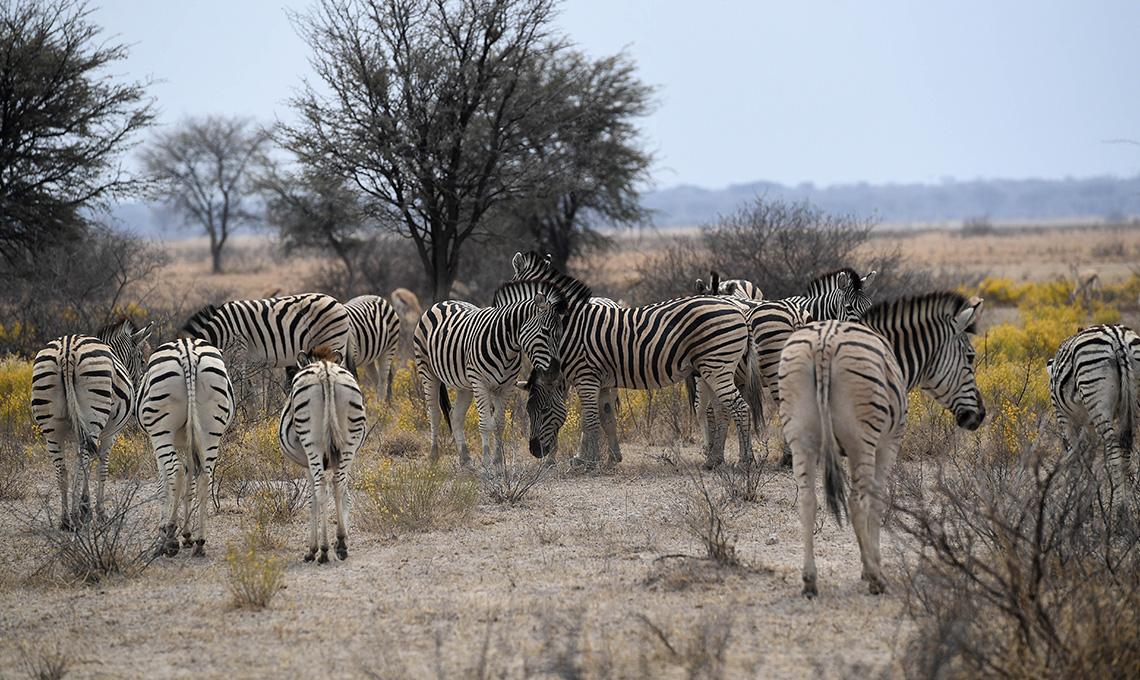The Southern African Development Community (SADC) recognises the importance of sustainable use and management of the environment in the fight against poverty and food insecurity. Sustainable development means that Economic Development integrates concerns about the people of region and the environment that many depend upon for their livelihoods.
SADC Member States have committed themselves to integrated and sustainable development. This commitment is reflected by the SADC Treaty establishing the organisation, and active participation in the negotiations and ratification of major Multilateral Environmental Agreements. This commitment is also demonstrated through their active participation in the negotiations and ratification of major Multilateral Environmental Agreements (MEAs). To this end, the SADC Region has endeavoured to put in place mechanisms for the implementation of MEAs such as the United nations Framework Convention on Climate Change (UNFCCC); United Nations Convention to Combat Desertification (UNCCD); United Nations Convention on Biological Diversity (CBD); Basel/Bamako Convention; Persistent Organic Pollutants (POPs); and Ramsar Convention. In addition, Member States are committed to the attainment of Millennium Development Goal. Member States are committed to attaining all Millennium Development Goals, including those that promote Environmental Sustainability.
While encouraging progress is being made in environmental management in the region, land degradation, deforestation, loss of biodiversity, pollution, inadequate access to clean water and sanitation services, and poor urban conditions continue to threaten sustainable development. These environmental challenges and social conditions undermine sustainable socio-economic development in the region. These factors are linked to the high levels of poverty in the region, whereby the poor are victims and agents of environmental degradation.
In order to address sustainable development, SADC has established three main environmental policy goals:
- Protect and improve the health, environment and livelihoods of the people of southern Africa with priority to the poor majority.
- Preserve the natural heritage, biodiversity and life supporting ecosystems in southern Africa.
- Support regional economic development on an equitable and sustainable basis for the benefit of present and future generations.
For an overview of sustainable development challenges and future initiatives in Africa, please refer to the 2011 Africa Consensus Statement to Rio +20.
History and Development of Environment and Land Management
The Soil and Water Conservation and Land Utilisation (SWCLU) Sector Coordination Unit was established within the Ministry of Agriculture, Co-operatives and Marketing, in Lesotho, in 1985. In 1991 mandate of this Unit was broadened to include the overall responsibility for environmental coordination in the SADC region. At this time the Sector name was changed to SADC Environment and Land Management Sector (ELMS) to reflect this broadened scope.
The Environment and Sustainable Development Programme, under the Food, Agriculture and Natural Resources Directorate, was established to ensure the equitable and sustainable use of the environment and land based resources for the benefit of the present and future generations. Agriculture plays an important role in the economy of all SADC Member States and many people in the region rely on subsistence farming. Environmental degradation threatens economic development and directly affects peoples’ livelihoods.
Mainstreaming Environment and Sustainable Development
Mainstreaming environmental issues means that that SADC integrates concerns for sustainable development into their policies, strategies and programmes. This concept is one of the key focus areas for environment and sustainable development outlined in the Regional Indicative Strategic Development Plan. In order to satisfy this focus, the Food, Agriculture and Natural Resources Directorate initiated the development of the Environment Mainstreaming Manual in early 2010. The manual facilitates mainstreaming of environment into Socio-economic Development activities across the region. It complements and supplements national environmental and sectoral environmental impact assessment regulations and guidelines to ensure that all development efforts in the region take environment into consideration to ensure the region’s sustainable development.


